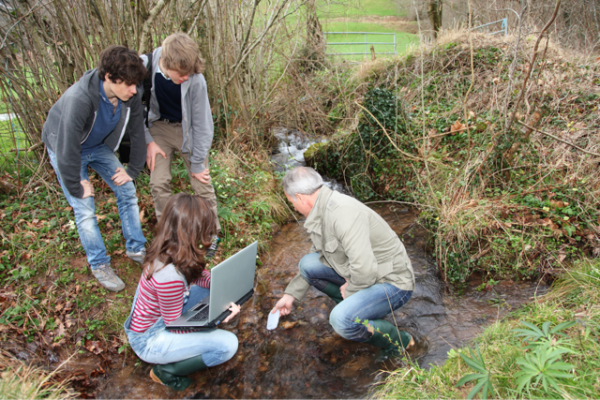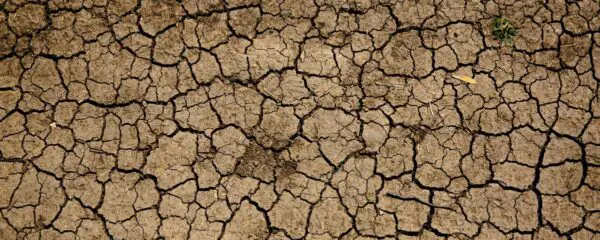
Pisa, Italy
Introduction to Python for Geoscience Applications
When:
22 June - 26 June 2026
Credits:
3 EC
Read more
Geo Sciences Summer Course
When:
18 May - 22 May 2026
School:
University of Pisa Summer School
Institution:
University of Pisa
City:
Country:
Language:
English
Credits:
3 EC
Fee:
750 EUR


Mineral water holds both exclusive socio-economic value, rooted in industrialization and commercialization processes, and deep cultural value significance for local populations who have used spring waters on a daily basis over time.
The complexity of water-rock interaction processes, which give rise to the unique composition of mineral waters, requires integrated and multidisciplinary approaches for their effective characterization.
This Summer School will offer a comprehensive, field-based learning experience, covering a broad range of topics crucial to the study of mineral and thermal waters:
- Hydrogeochemistry (gas and physicochemical parameters): to evaluate groundwater natural composition and assess deviations from natural baseline values;
- Structural geology: to understand the geometry of groundwater flow path;
- Isotope hydrology: to trace groundwater recharge processes and determine groundwater age;
- Hydrogeology: to identify groundwater flow paths and support geochemical interpretation of water-rock interaction and mixing with surface water;
- Socio-hydrogeology: to assess the socio-economic impact of mineral and thermal waters, and improve communication between scientists and water users.
The Summer School will be held in Corte (Corsica – France) from May 18th to 22nd, 2026.
Corsica is a unique place for testing integrated approaches, characterized by the presence of a multi-composite geological and hydroclimatic context, giving origin to different types of thermo-mineral waters. Indeed, the Mediterranean mountainous Island of Corsica is well known as a geo-diversity hotspot.
Mineral and thermal groundwater are very special water resources characterized by stable and specific geochemical characteristics in terms of dissolved ions and gaseous contents as well as stable, and most of the time, relatively high temperatures. Groundwater circulation in-depth increases the complexity and the multiplicity of groundwater pathways and provides a high diversity of water qualities with potential commercial and health benefits such as for mineral, thermal, alkaline, CO2-rich, ferruginous or sulphurous waters. These processes can be even more complex in the case of long-residence-time groundwater. Integrated geological and environmental tools are very interesting when used together because they can provide information on water origins, chemical properties and mixing processes, as well as an estimation of the timing of the processes.
The Summer School is jointly organised by the University of Pisa (UNIPI, Italy) and the University of Corsica Pascal Paoli (UCPP, Corsica, France). It is chaired by Prof. Viviana Re (UNIPI), Dr. Maria Di Rosa (UNIPI), Dr. Stefano Viaroli (UNIPI), Prof. Sebastien Santoni (UCPP) and Dr. Thomas Leydier (UCPP), with the help of Prof. Emilie Garel (UCPP) and Prof. Frederic Huneau (UCPP), and with the support of the University of Corsica Pascal Paoli.
Students will be hosted at the University of Corsica Pascal Paoli, Corte, France
Prof. Viviana Re
MSc students (in Geology, Environmental Sciences or similar fields), PhD candidates, Early-Stage Researchers, Professionals
The interdisciplinary Summer School proposes a novel and integrated approach to understand the past, present, and future of water resources through the lens of structural geology, geochemistry, hydrogeology and socio-hydrogeology.
Thanks to hands-on field and laboratory experiences the Summer School will provide participants an opportunity to deepen their knowledge of the main disciplines necessary to characterize water quality and quantity and to translate this information into management proposals for the long-term protection of this resource.
After the course participants will be able to carry plan integrated monitoring assessment, use in situ monitoring probes, correctly store and preserve samples for chemical and isotopic analyses.
Participants will learn to identify the main geological structures in the study area, collect and store samples and deepen their understanding of water-rock interaction processes in mineral waters.
Video challenge: Throughout the week, participants will be trained in observation and measurement techniques of the hydrogeochemical properties of different thermo-mineral springs investigated in highly contrasting geological settings. Based on photos and/or field video recordings, each group will be asked to produce a 2- to 5-minute video focusing on an object or a method that they particularly enjoyed. For example, this could be a tutorial video on how to carry out physico-chemical measurements using probes, how to perform colorimetric field tests, how to measure radon gas activity, or a video presenting the full set of activities carried out during a day, starting from the geological context of the investigated site
Fee
750 EUR, tuition fees
When:
18 May - 22 May 2026
School:
University of Pisa Summer School
Institution:
University of Pisa
Language:
English
Credits:
3 EC

Pisa, Italy
When:
22 June - 26 June 2026
Credits:
3 EC
Read more

Aarhus, Denmark
When:
27 July - 09 August 2026
Credits:
5 EC
Read more

Marseille, France
When:
09 June - 11 June 2026
Credits:
0 EC
Read more